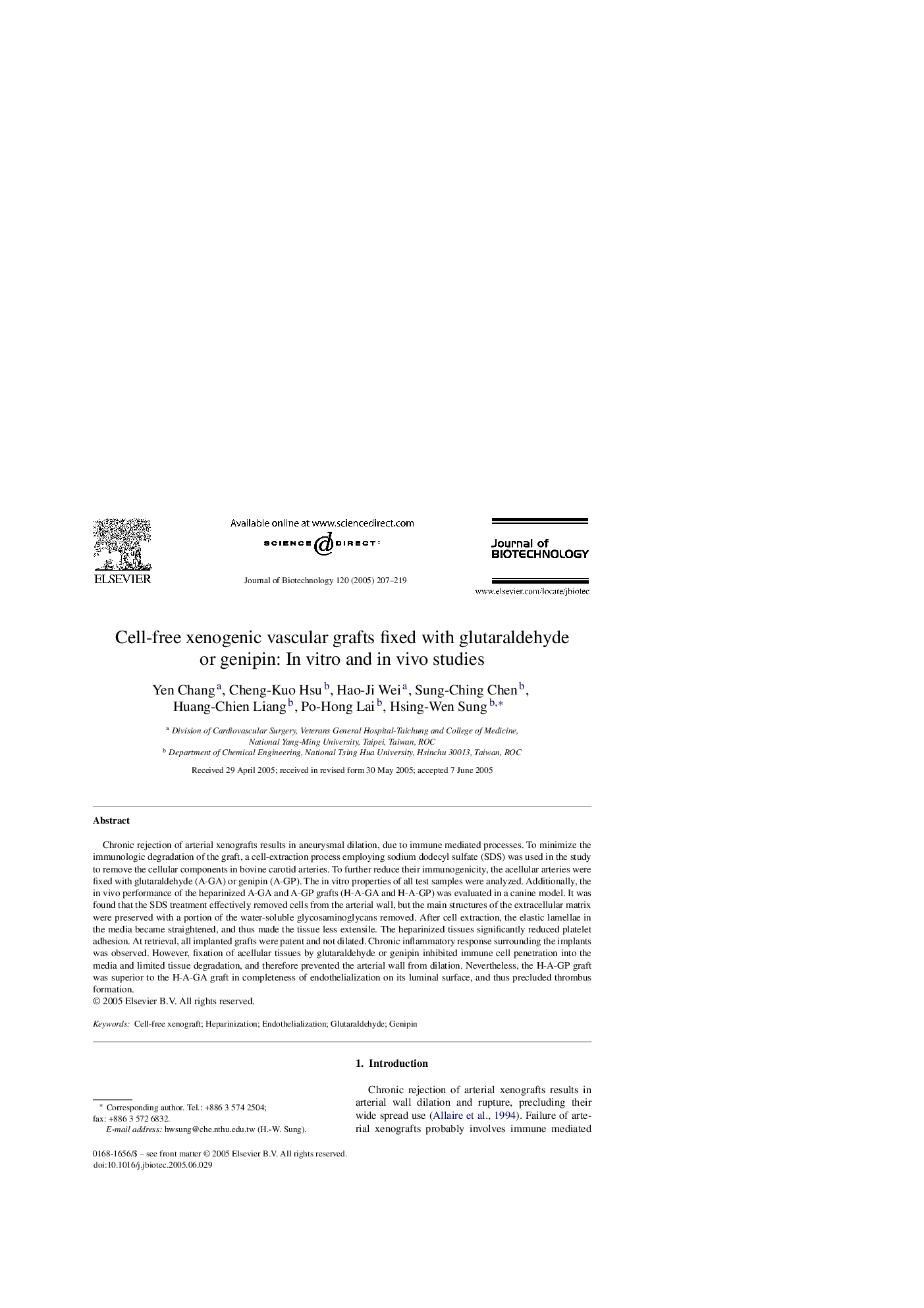| Article ID | Journal | Published Year | Pages | File Type |
|---|---|---|---|---|
| 9604249 | Journal of Biotechnology | 2005 | 13 Pages |
Abstract
Chronic rejection of arterial xenografts results in aneurysmal dilation, due to immune mediated processes. To minimize the immunologic degradation of the graft, a cell-extraction process employing sodium dodecyl sulfate (SDS) was used in the study to remove the cellular components in bovine carotid arteries. To further reduce their immunogenicity, the acellular arteries were fixed with glutaraldehyde (A-GA) or genipin (A-GP). The in vitro properties of all test samples were analyzed. Additionally, the in vivo performance of the heparinized A-GA and A-GP grafts (H-A-GA and H-A-GP) was evaluated in a canine model. It was found that the SDS treatment effectively removed cells from the arterial wall, but the main structures of the extracellular matrix were preserved with a portion of the water-soluble glycosaminoglycans removed. After cell extraction, the elastic lamellae in the media became straightened, and thus made the tissue less extensile. The heparinized tissues significantly reduced platelet adhesion. At retrieval, all implanted grafts were patent and not dilated. Chronic inflammatory response surrounding the implants was observed. However, fixation of acellular tissues by glutaraldehyde or genipin inhibited immune cell penetration into the media and limited tissue degradation, and therefore prevented the arterial wall from dilation. Nevertheless, the H-A-GP graft was superior to the H-A-GA graft in completeness of endothelialization on its luminal surface, and thus precluded thrombus formation.
Related Topics
Physical Sciences and Engineering
Chemical Engineering
Bioengineering
Authors
Yen Chang, Cheng-Kuo Hsu, Hao-Ji Wei, Sung-Ching Chen, Huang-Chien Liang, Po-Hong Lai, Hsing-Wen Sung,
